Making Knives, Drinking Beer, and Emotional Delay: My Last Month in Nepal
- stemeillon
- Jun 7, 2025
- 9 min read
Coming down from the Tibetan village was exhausting, both mentally and physically. I was in dire need of an easy time and it’s not often I allow myself to indulge in an easy time. I arrived in Pokhara after the worst bus journey I’ve experienced so far (20 hours became 40, plus an unexpected overnight in a hotel in the middle of nowhere with a strange girl that wanted me to photograph her in the nude, and then a flat tire, and then they drove past the stop and barely let me off, in the middle of the night on the highway). I got to my hostel and crashed in my bunk in what felt like luxury.
The next morning I went for a massive breakfast. I was in a city called Pokhara, which borders a lake and is quite lovely. But it also felt fake—it felt like everything was built to appease tourists, and it certainly didn’t feel like Nepal. But in a way that’s exactly what I needed. I met a great crew of people from all over and we hung out by the lake and did a paddle boat for sunset and I started to eat back all the weight I’d lost in the village. It was just so lovely and easy.
I hung out there for a very relaxing four days and then took a bus and a jeep up to Manang, where I was meeting my friend Elise at her boyfriend’s hotel. It took a day of travel and I spent another 4-5 days up there hanging out with Elise, playing guitar, walking her dogs, and eating what, to me, was delicious food—pasta, soup, chicken, cheese that doesn’t take five minutes to chew through…
After the five days we headed back into Kathmandu and I stayed another week at their house in a charming area called Swoyambhu. We spent most of our time in the central district of Thamel catching up with people and drinking beer and enjoying the social urban environment. To be honest my time spent in these weeks looks like a waste on paper, but man oh man I was so depleted, mostly mentally, from my time in the village. I reflected on the fact that while a challenge is healthy for growth, it’s definitely possible to overdo it. And that’s how I felt. In the end my time up there with Dawa was not necessarily positive and while there’s no point in regretting, I do think I could have done other things with my time. But I am still grateful for the experience overall and the fact that I learned so much about Tibetan Dolpali culture. I just wish things had gone differently with Dawa (that he hadn’t tried to manipulate me into offering him a green card marriage).
Spending time around someone who is so unappreciative of the beautiful things in their life definitely made me more appreciative of mine. I was getting apprehensively excited to see my mamma and my sister and all of my friends back home. After Swoyambhu I started house sitting in Jhamsikhel for a German friend of mine and for the first time in my life I found myself in a space that was completely mine, with a kitchen and everything! And I won’t lie, it was really really nice… and lonely, and I realized I didn’t want to spend my last days in Nepal alone, so I spent most of my time outside of the apartment in the end.
Knife Making
I also spent three days learning about traditional knife (khukuri) making with a craftsman in an area of the city called Lalitpur. The man I was learning from is exactly what a blacksmith should be. He looked like if Papa Smurf was younger and Nepali and buff as heck and also not blue. He has been blacksmithing since he was 11 years old, and now it’s been 34 years. Kishu is a master of his craft, without a doubt. But when I asked him if his children are learning about blacksmithing he said absolutely not, and that he is providing them a good education because he doesn’t want them to have to do the same hard work all their lives. Because of that I worry what the future of blacksmithing looks like, although the “untouchable” cast of Nepal does still exist, if unofficially, and I know that for some blacksmithing would be the most promising form of employment.
The first day, using all “primitive” manual tools, we heated up a metal blank and started to cut it into shape. All the steel is sourced from old trucks! As we cut the metal, using swings from a sledgehammer onto a little wedge that Kishu held in place, sparks and oxidized metal bits flew everywhere and Kishu was just wearing some shorts and sandals! He must be immune to fire after so much time in the shop.
We moved on to shaping the cut metal into a blade with a lot of hammering, although the hardest part was just holding the metal in place with the blacksmith tongs. We also had to scrape all of the black oxidization off the blade which took a lot of force and was exhausting. He used one foot or his toes to hold the blade in place and used his brawn to scrape the blade, and when I tried to do the same I realized 1) my hips aren’t as flexible as his and 2) my muscles are very “sano” (small) compared to his.
The second day we finished scraping the blade and started working on the handle. Using a khukuri we chopped away at a little block of rosewood until it resembled the right shape… while I could do the chunky less delicate work, he always did the finer details to ensure we wouldn’t have to start over 100 times. We also had to regrind the blade with a sort of pumice stone for metal, and then he used a stamp and hammered it into the blade to create an engraving. To do the copper inlays he just hammered in a little bit of copper wire.
We finished shaping the handle and then had to pierce a hole through the center, where the blade would slide in. Since we didn’t have any power tools, we heated a metal rod and hammered it through the handle, which was a bit freaky because the wood kept lighting on fire in our hands. Then we shaped the little metal bit that connects the blade and the handle by cutting a strip of metal from a bigger brass sheet, shaping it into a ring, and then using solder to join the two sides. We meticulously shaped it to fit the handle and the blade, and all of a sudden we could assemble the whole knife! We filled the handle hole with epoxy and had to leave the blade in there for a day to solidify. This used to be done with resin but it’s much weaker.
When I came back on the final morning we finished shaping the handle and sanding it down to make sure it was the right weight, size, and shape. Then we used a hand grinder to make the blade sharp and that process was exhausting, we kept having to switch off and take turns who was turning the mill. And then all of a sudden it was done! The knife was beautiful and imperfect and I was grateful to learn about the whole process.
The guy that organized the whole thing (whose name I forget) also showed me their more modern factory, where they do use power tools like drills, sanders, mills, etc. but everything is still done by hand. They also have guys in house who are putting together the leather sheathes. All in all the whole process is just an insane amount of work. The place gets a ton of custom requests from all over the world, mostly from blade collectors, and some of those designs are just ridiculously detailed and beautiful or weird.
A poem of sorts:
Nepali blacksmiths have four hands and are probably very good at yoga.
If this guy ever wanted to exfoliate his hands he’d have to use a cheese grater
He tests the sharpness of his tool by shaving a hair off his thigh,
And I’d hate to get on his bad side
But he wears a beanie despite the heat to protect his hair,
Teaches with patience,
Gives the biggest smiles,
And calls me his chori and baby blacksmith
My Last Few Days
Where did the time go? I could not tell you. It’s crazy how three weeks in a city goes by faster than three weeks alone in a Tibetan village…
My last week was a bit of a blur, in a great way, and I spent the majority of my time with friends at the best bar in Kathmandu (The Hole in the Wall). We played guitar and sang and danced and giggled and drank beer. And I reflected on what my last month in Nepal meant to me.
Then on my second to last day I had lunch and was buying some stuff for people and got dizzy and nauseous and sat down for an hour before taking a taxi home. Then I started to feel a pain in my chest right around my heart and my left arm went numb and I freaked out because those are textbook heart attack symptoms. I went straight to the nearest hospital and got admitted and had a bunch of blood draws and an EKG and everything looked okay I guess? They kept me for the night and the next day I started to get seriously pissed off because I had so much stuff to do before my flight in 20 hours. They did an echo graph and told me it was effin gastric (it absolutely was not) but that there was no problem with my heart and it was likely just muscle pain. Whatever. I decided if there was nothing glaringly wrong then I’d go do all the endless things I had to do before leaving, get on my plane, and check it out when I got back. Then they wouldn’t give me my passport back until I paid in full because the dude didn’t submit to my travel insurance until the minute I was leaving and wanted a guarantee that the bill would get paid. So I maxed out my credit card and got the heck out of there. Insurance better come through huh.
I went home and scrambled to get all of my stuff together and then pulled an all nighter since I had to leave for my flight at 5 AM. This left zero time for emotional processing, which was excellent because I knew that once I settled again I would get super sad about leaving my new family behind.
I got on my flight, slept the whole 7 hours to Istanbul, and was going to my next gate when I saw “Last Call” and started a mad sprint across the airport. I showed up at my gate drenched in sweat and they told me they closed the doors two minutes prior and would not let me on no matter how much begging and sobbing and pleading I did. The plane was right there! What a bunch of __. They will make a flight late for anything except its passengers.
I went to the Turkish Airlines counter and the lady told me the next flight was in two days, to which I said “Are you fu**ing kidding me” and she immediately grounded me. “We are not in America. You can not say this kinds of bad words here.” I apologized and was so humbled and just freaking exhausted. I had nothing left in me. Two days in a hospital direct to an all-nighter and now this just seemed like too much to handle. Then a Tibetan man who was, I suppose, in the same situation as me, looked at me and laughed and said “… are you crying!?” I realized how stupid it was and shaped up and helped them apply for an e-visa to enter Istanbul so that we could stay at a hotel in the city courtesy of the airline. Hours later we were in a supa nice hotel in Istanbul, ate too much at a buffet, and took a deep breath. The Tibetan granny was on cloud 9 after a crazy luxurious shower (complete with hot water and a rain shower thingy and big fluffy towels). I couldn’t help but be reminded of Nima, the grandmother in the village, and it was really just an adorable moment.
The next morning we got on a rerouted flight to New York. Once in JFK we realized we would either have time to collect our baggages OR make our flight so we said okay welp the bags will be fine (fingers crossed), and after pleading with every single person in the endless security line we budged our way to the front and sprinted to our gate and got on our flight with just minutes to spare.
Landing in Denver felt unreal. I honest to god didn’t expect to ever make it. I slammed into my mother’s arms and felt crazy tensions decompress and then waited for bags that never came. Whatever. I was sure they were stuck in New York and couldn’t do anything about it in that moment anyway, it was too late and all the luggage counters were closed. We got stuck in another hour of construction traffic leaving the airport and hours later I was finally home. I hadn’t done any processing yet but I did know that it felt quite unreal and so appeasing to be home. Woah.

More to come soon as I finish digesting what it means to be back stateside.









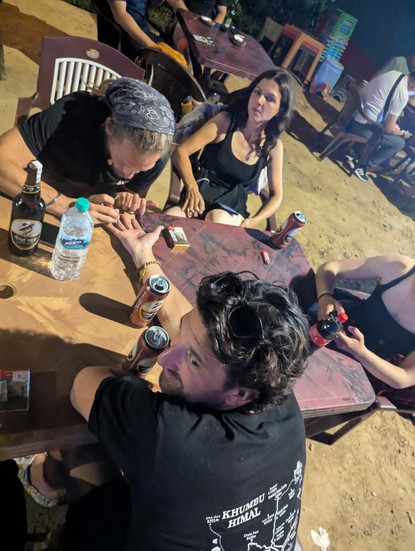
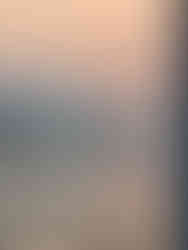

































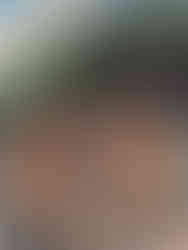





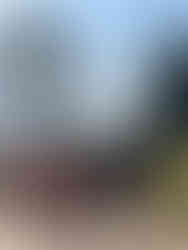




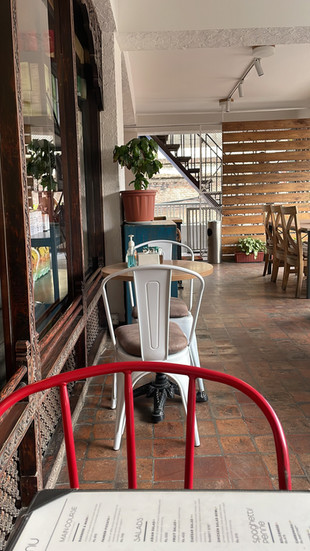





















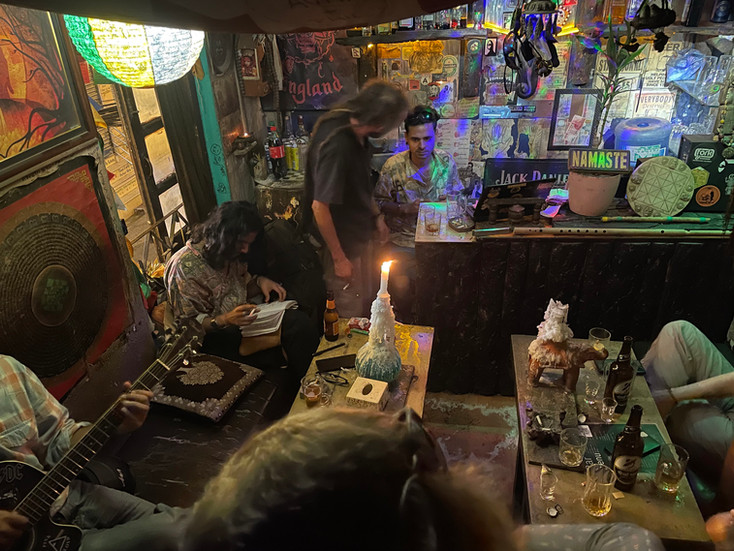












Comments